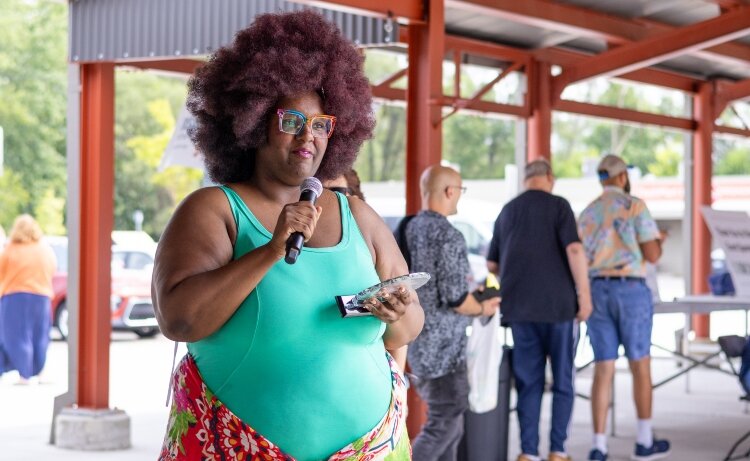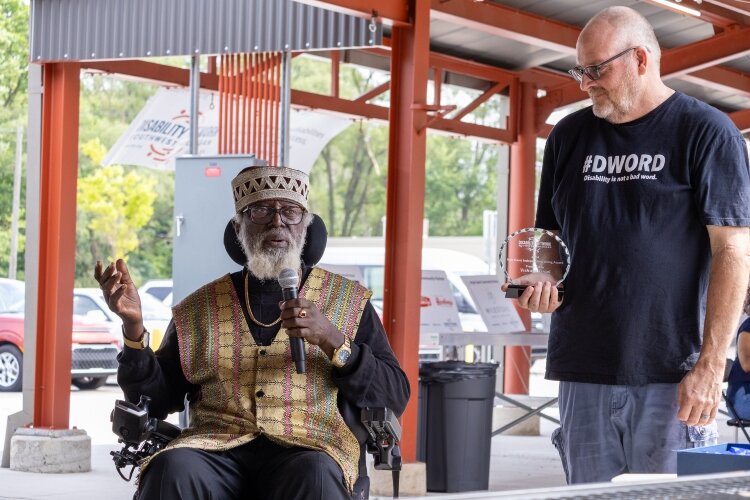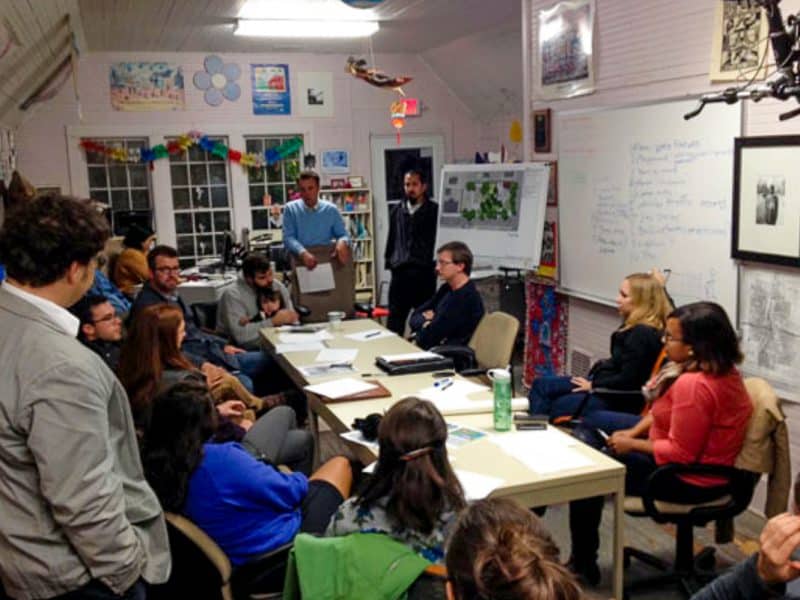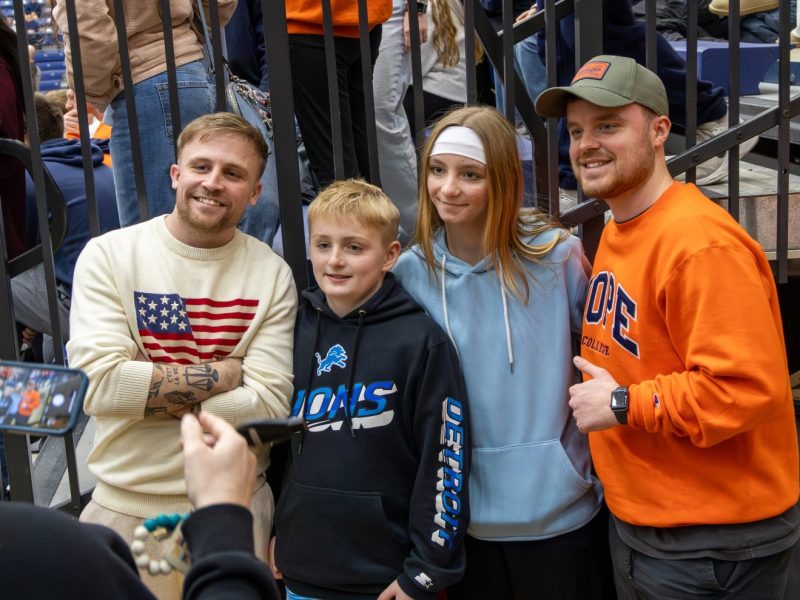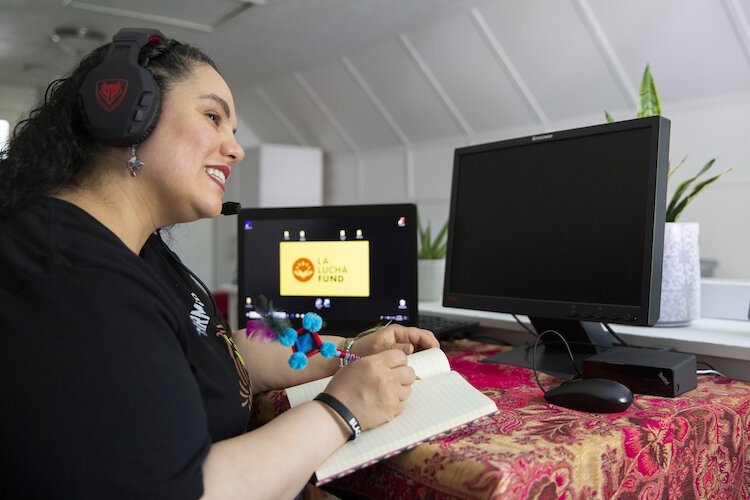Disability Network honors Southwest Michigan advocates of independence, accessibility
Two Southwest Michigan residents and an organization were honored by the Disability Network Southwest Michigan for their work to advance independence and accessibility.”
Zaria McCroy doesn’t fit the stereotype many associate with someone who has a disability. But McCroy, like many others, knows firsthand that disabilities come in many forms – some visible, others hidden.
Her life took a sharp turn at age 19 when she fell down a flight of stairs, an injury that left her dependent on a walker for mobility. That moment, she says, ultimately led her to the support of Disability Network Southwest Michigan, an organization she credits with transforming her life.
“I didn’t always identify as a person with a disability,” says McCroy, 26. “I have mental health, orthopedic, and cardiovascular conditions, but I never fully understood what living with a disability meant until that injury. What I’ve learned is that disabilities can happen to any of us, at any time.”
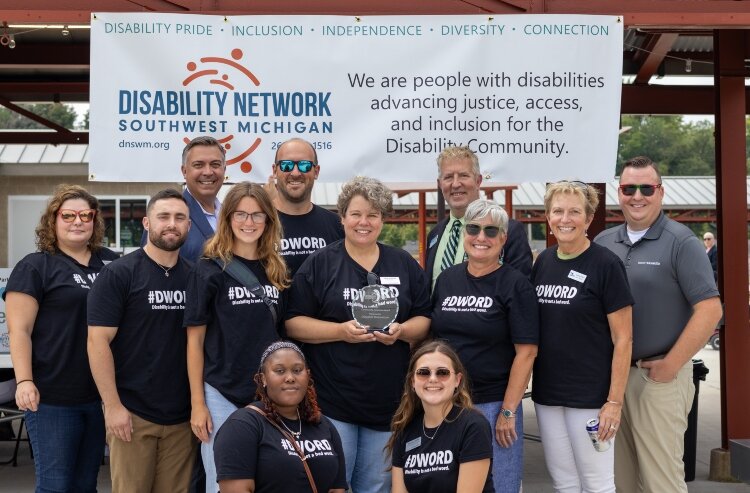
McCroy says she now relies on home health care services for tasks like cleaning, shopping, meal prep, and managing medications – things that may be easy for most people, but are not for her.
“I also have a heart condition, so I can’t do anything that involves going up and down a lot,” she says.
McCroy has turned her personal challenges into advocacy, becoming a voice for disability rights in Southwest Michigan. Recently, Disability Network Southwest Michigan honored her with the Bob Davis Independent Living Award.
In addition to McCroy, 80-year-old veteran Yeshwua Israel, who has dealt with significant challenges to maintain his independence, and Discover Kalamazoo, a community organization committed to ensuring accessibility for all, were recognized at its ADA Celebration.
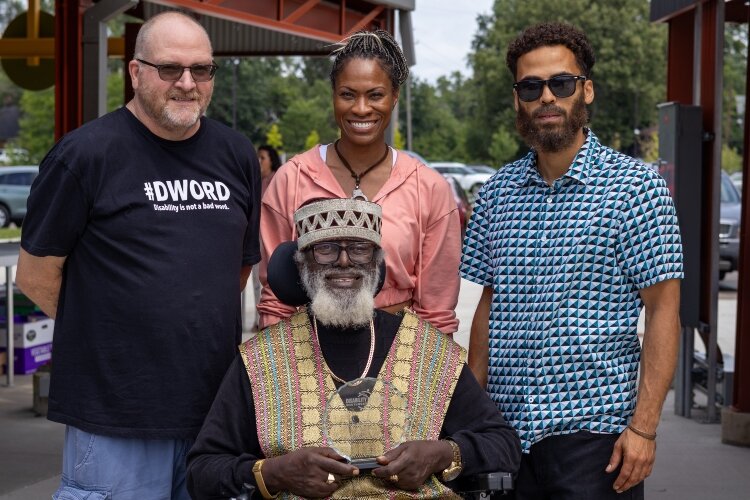
Speaking up for herself
McCroy’s journey has been marked by challenges that, at times, seemed insurmountable.
However, through her resilience and the support of community resources, she has grown into a powerful self-advocate, inspiring others to find their own voices and fight for themselves.
After her injury, McCroy faced significant hurdles, including the lack of a steady income, stable housing, and access to basic necessities like food, clothing, and medical care.
“The Disability Network helped me become more organized and resourceful, and it boosted my confidence. I’m a very artistic person, and they helped bring that to light,” she says, adding that before that support she struggled. “I felt completely stuck. I had no idea how to navigate the systems in place that are supposed to help people with disabilities.”
Her connection with Disability Network Southwest Michigan began as an effort to meet immediate needs, but soon became transformative.
“They were there for me, step by step,” McCroy says. “They helped me get connected with a local food pantry, secure a wheelchair that I used for eight months before a walker, and even replace vital documents like my ID and Social Security card. These things sound simple, but for someone in my situation, they were overwhelming.”
McCroy credits the organization with helping her learn how to advocate for herself.
“They showed me how to navigate complex systems, and when I was too mentally exhausted to fight for myself, they advocated on my behalf,” she explains. “Over time, I learned it’s OK to ask for help, and there’s no shame in that.”
Building a future
The organization’s support extended beyond immediate needs. As McCroy began to rebuild her life, the staff helped her focus on her future, teaching her how to communicate her strengths and disabilities to potential employers and school counselors. During a particularly difficult time when she was stranded at The Cleveland Clinic, Disability Network ensured that she made it safely home to Battle Creek and encouraged her to continue necessary medical treatments.
“Disability Network gave me the tools to tackle the biggest barriers in my life: my mental health, my physical needs, and the transition into adulthood,” McCroy says. “For the first time since I was 18, I felt stable enough to think about the next steps in my life.”
Her hard work and perseverance have paid off. She now has a stable home, a regular income, and is raising her young son. The skills she learned through Disability Network now extend into her role as a mother, where she advocates for her son’s health and well-being with the same confidence she found in advocating for herself.
“I feel more confident speaking to doctors, asking questions, and ensuring my son gets what he needs,” McCroy says. “I have a great support system with my partner, and together we advocate for his needs, too.”
‘With me every step’
Looking back, McCroy is most grateful for Disability Network’s unwavering belief in her potential.
“They never let me forget that having a disability doesn’t mean I have to settle for less,” she says. “They helped me rediscover the talents and skills I thought I’d lost under the weight of my circumstances.”
“Disability Network helped me become more organized and resourceful, and it boosted my confidence. I’m a very artistic person, and they helped bring that to light,” she says.
She says receiving the award feels like a milestone. The awards spotlight the impact of individuals and organizations in fostering a more inclusive and supportive community for people with disabilities.
“Disability Network was with me every step of the way, helping me understand processes, advocating on my behalf, and demonstrating how to speak up for myself,” McCroy says.
“For me, it’s mainly about making sure my disability doesn’t stop me from living an enjoyable life. For a while, I didn’t feel like I could live in the world being disabled. But now, I’ve learned how to work around my limitations and voice my needs,” she says.
Disability Network’s Mary Fortney and Allison Leece nominated McCroy for her dedication to her own independence and her ability to encourage others to do the same.
“I was surprised, but I appreciated that it was even a thing they did, recognizing people for their work in independent living and the progress that’s been made,” McCroy says.
She continues to reach out to others in the community, telling them about the resources available through Disability Network. The organization asked McCroy to speak at its Breaking Barriers Breakfast in April.
“I have friends with disabilities who don’t even know about the Network, so I try to connect them,” she says. “Their support is truly a hidden gem.”
Fighting for independence
Yeshwua Israel, known as Chief, also received the Bob Davis Independent Living Award. At 80 years old, Israel has dealt with numerous challenges related to his disability and continues to live independently in his apartment in Kalamazoo.
Nominated by DNSWM Program Manager Hank Bostic, Israel has been a lifelong self-advocate. Although visually and physically impaired, he maintains his independence, cooks for himself, tends a garden outside his apartment, and drives either in his car or a battery-powered chair to appointments. Israel, who served in the U.S. Army after high school, has been fighting for years to secure documentation of his service record, so he can access veteran benefits.
Israel’s determination is further highlighted by his 36 years of sobriety and his continued passion for music. Though he recently retired from playing percussion after a fall and injury, Israel is still exploring new ways to stay connected, including pursuing his amateur radio (ham radio) license.
“He is very independent and not bashful about letting you know,” says Bostic.
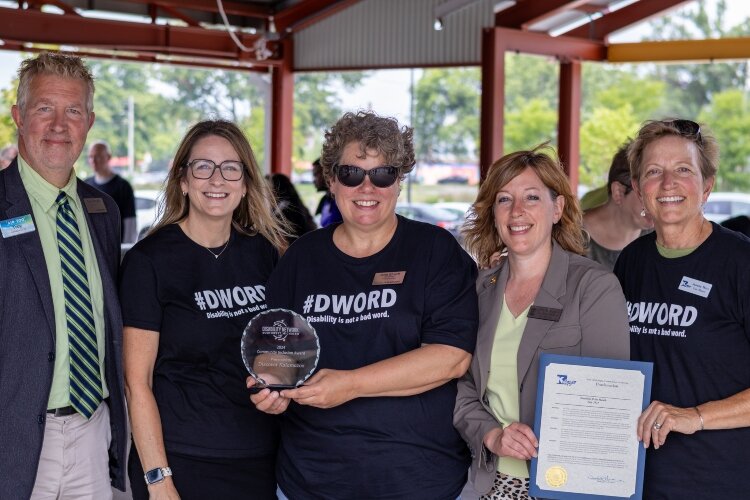
Assessing accessibility
Discover Kalamazoo was awarded the Community Inclusion Award for its commitment to ensuring that Kalamazoo is accessible to all.
The organization was nominated by staff at Disability Network Southwest Michigan for its “dedication to making Kalamazoo a fully accessible community aligns perfectly with our vision for Southwest Michigan.”
One of Discover Kalamazoo’s key initiatives is a collaboration with Wheel the World, a global accessibility project, to complete assessments for 130 local businesses. These assessments provide information about the accessibility of various locations, helping residents and visitors with disabilities navigate the area.
“So far, we’ve mapped about 45 to 50 locations,” says Discover Kalamazoo President and CEO Jane Ghosh, adding that these assessments offer businesses practical feedback on how to improve accessibility. She says response from the community has been overwhelmingly positive.
“At first, some were hesitant to have their facilities mapped, but now, after seeing the value in the feedback, our partners are getting on board,” Ghosh says. The accessibility reports not only help businesses create more inclusive spaces but also make Kalamazoo a more attractive destination for travelers seeking accessible locations.
Ghosh says she and her team are committed to making the city a national leader in accessibility.
“We’re really fortunate to have such a supportive community, and it’s inspiring to see everyone come together to make positive changes,” she says.
This series is made possible through a partnership with Centers for Independent Living organizations across West Michigan.

